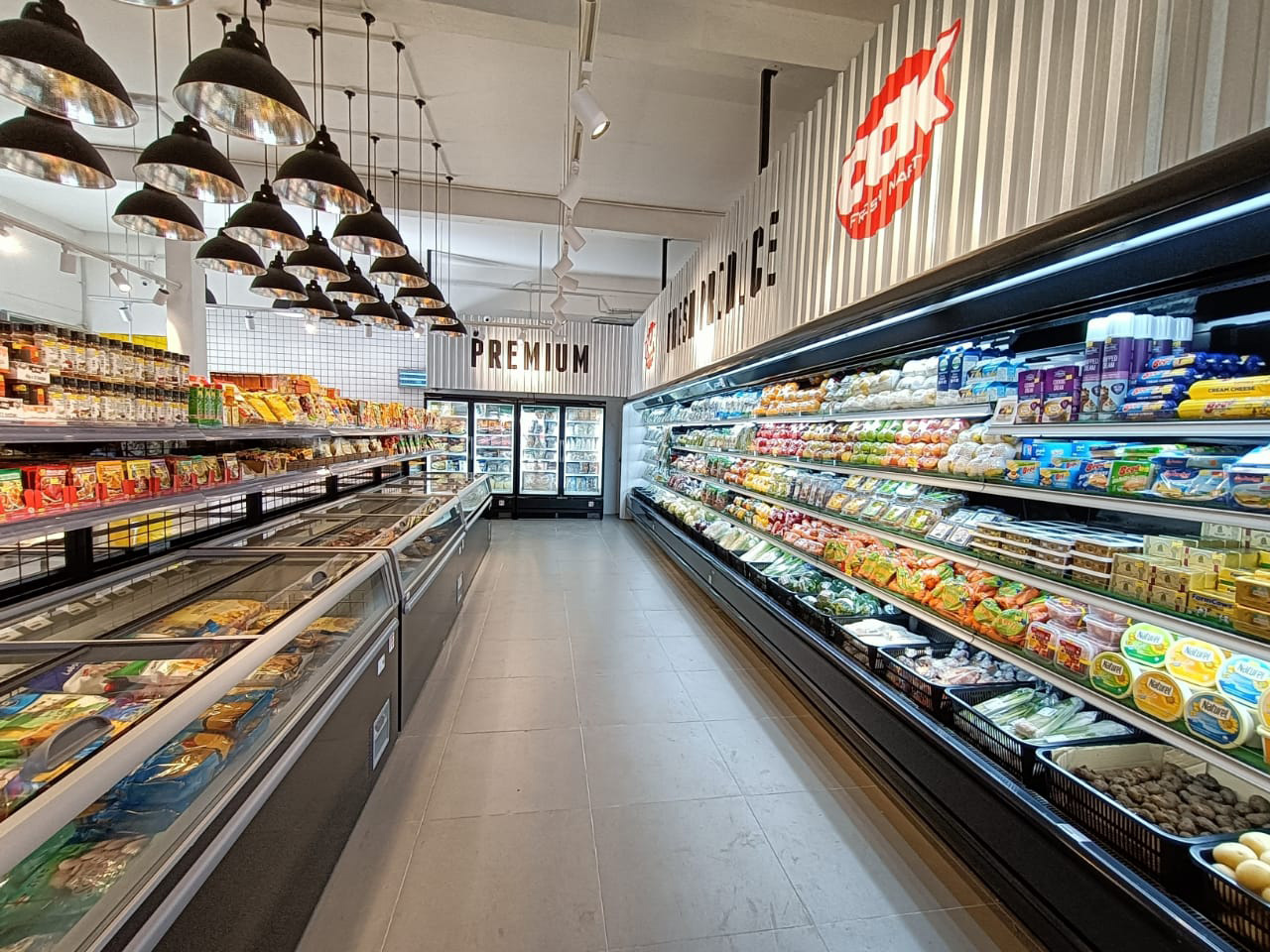A technological upgrade doesn’t require a totally new machine

Dennis Loo
CCK Plant Manager

Dennis Loo, Plant Manager with CCK in Malaysia, talks about the progress the company has made since 1982. Regular upgrades of the factory have kept CCK in line with customer demand. “Since the initial contact in 1994 between CCK and Marel (Stork at that time), our partnership has grown over the years providing a win-win situation for both parties. The comprehensive Marel package has significantly improved our production and is sustainable long-term. Proper preventive maintenance has really helped reliability,” says Dennis Loo.
“We use crates for live bird supply and after scalding and plucking, both using Marel systems, the Nuova eviscerator automatically transfers the viscera pack. Since our latest update in 2023, the giblet harvesting system has been automated with a PGI Intestine/gallbladder remover, PLH liver harvester and HLS heart/lung separator. After water chilling, PDS software distributes our 4,000 birds per hour. Approximately 30% of our products are sold as whole birds, 60% are cut-up, and 10% are deboned using a cone line.”

“We are particularly impressed by the durability and sustainability of Marel equipment. To give an example, we were able to upgrade an existing 20+ years old plucker with new parts. Although Marel has changed the plucker design a lot over the course of years, the new parts still fit our old machine, which is now completely up-to-date. I like it when a technological upgrade doesn’t necessarily require the purchase of a totally new machine. This is a very sustainable approach.”
“It is very diverse. Some people are still slaughtering in their backyard, while others buy only in supermarkets and fast food restaurants. The younger generation in particular, who come into our CCK stores, no longer wants to buy whole chickens. Families in Malaysia at four to five people are relatively small. A whole chicken may be too big for them. That’s why we sell more cut-up chicken.
A technological upgrade doesn’t require a totally new machine

Dennis Loo
CCK Plant Manager
The halal market is very important in Malaysia. We slaughter 100% halal and strictly follow all the halal requirements. Our people are certified to do this and are checked by the government, who do regular audits. All the people of different cultures in Malaysia eat chicken, which is currently the cheapest protein available. Chicken is most commonly used in chicken rice, the traditional favorite, although younger people prefer fried chicken, curry chicken etc. Chicken legs are widely liked for their texture, while chicken breasts appeal more to health-conscious consumers. At CCK, we try to cater for all these different preferences. Our versatile Marel solutions help us here.”
“Our shops sell all kind of retail products with up to 400 SKUs. These CCK ‘fresh markets’ are small supermarkets with groceries, fish, beef, lamb, vegetables, fruits, everything you need to prepare a meal in your kitchen. Chicken products, whole grillers, wings, legs, breast fillets, livers, gizzards, account for around 60% of sales

Central Coldstorage Kuching (CCK) started as a cold storage company selling fresh and frozen seafood. The management decided to diversify the product range by adding fresh chicken and chicken parts. From the start in 1982, with a few hundred birds processed manually, the company gradually grew. In 1994, CCK built its first processing plant processing 2,500 bph which was considered a significant volume at the time. CCK, however, foresaw the need to stay ahead and began a relationship with Stork/Marel for automated solutions. This was how a lasting relationship started. In 2010 an upgrade resulted in a line speed of 4,000bph. In 2018, the evisceration department was modernized with a VC vent cutter, VO opening machine and Nuova eviscerator, enabling a daily capacity of 40,000 birds. The most recent update dates from 2023, when CCK added automated transfer units and the giblet harvesting line.
Today, CCK is a vertically integrated organization with breeder farms, a hatchery, a feed mill, broiler farms, layer farms and CCK retail stores in East Malaysia and Indonesia. Roughly 70% of the chicken production goes to its own stores but CCK also supplies KFC and supermarkets. The Kuching factory only supplies the East Malaysian state of Sarawak, while another factory in Indonesia supplies the Indonesian stores. CCK’s head office is also in Kuching, Sarawak region, Borneo, Malaysia.
Company website: cckfm.com.my
We are particularly impressed by the durability and sustainability of Marel equipment.

Dennis Loo
CCK Plant Manager
Our dedicated team is here to help and answer any questions you may have. Please complete the form, and we’ll get back to you as soon as possible. We look forward to hearing from you.